Unveiling Pros & Cons of Glass Cookware: In-Depth Analysis
Have you ever considered the impact of your cookware on your health and the environment? As a health-conscious and eco-friendly consumer, I did, and that’s how I discovered glass cookware. But is it the right choice for everyone?
In this article, we’ll explore the pros and cons of glass cookware, from its non-toxic nature and elegant appearance to potential challenges like thermal shock and weight. I’ll share my experiences and research to help you decide if it aligns with your cooking needs and lifestyle.
Join me as we delve into the world of glass cookware. Let’s discover how it can enhance your culinary experience while considering its limitations for a well-rounded decision.
Understanding Glass Cookware
Glass cookware has become a beloved choice in my kitchen, offering a safe and non-toxic alternative to traditional non-stick options. Made from durable materials like borosilicate and pyroceram, glass cookware is celebrated for its resilience against high temperatures and its ability to resist thermal shock. This makes it a reliable companion for a variety of cooking adventures. Unlike non-stick cookware, glass is free from harmful chemicals such as PFOA and PTFE, which is a huge relief for health-conscious individuals like me who are keen on minimizing exposure to potentially toxic substances.
One of the things I adore about glass cookware is its versatility. It comes in many forms—baking dishes, pie plates, and even storage containers—offering flexibility that suits various kitchen needs. However, while glass cookware is a fantastic addition, it might not completely replace all types of cookware. Its unique properties make it particularly well-suited for certain tasks, but there are limitations, such as its suitability for specific cooking methods.
Understanding the pros and cons of glass cookware is essential for making informed decisions. This knowledge empowers you to integrate it into your culinary routine effectively. In my experience, embracing glass cookware has been a rewarding step towards a healthier, more sustainable lifestyle. It’s about finding the right balance and knowing when to reach for that trusty glass dish.
Why Choose Glass Cookware: The Pros
Exploring the pros and cons of glass cookware reveals a compelling case for its use in your kitchen. From its eco-friendly nature to its versatile functionality, glass cookware offers numerous benefits that cater to both health-conscious individuals and those passionate about sustainable living.
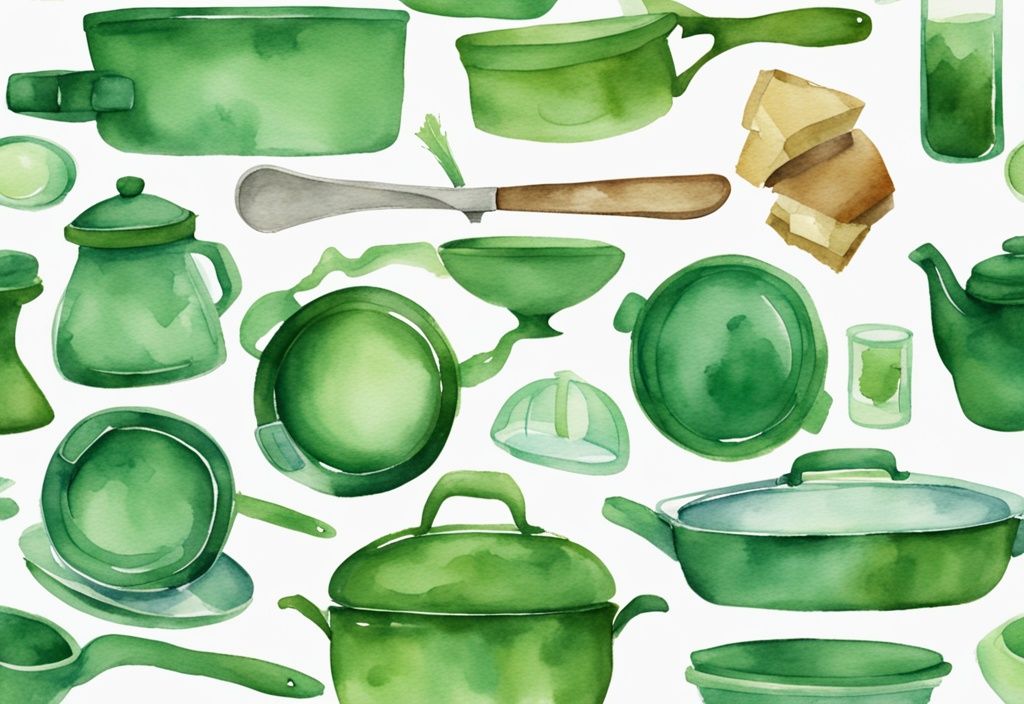
Eco-Friendly and Non-Toxic: A Safe Choice
When I first switched to glass cookware, I was amazed by how much safer it felt to cook without worrying about harmful chemicals. Glass cookware is free from the toxins often found in non-stick coatings, providing a healthier option for my family. Plus, by choosing glass, I knew I was reducing our reliance on non-recyclable materials like plastic, which felt like a small but meaningful step towards a more sustainable lifestyle; however, it’s essential to be cautious about claims regarding non-toxic cookware. To learn more about the potential pitfalls of non-toxic cookware claims, click here.
Heat Retention and Durability: Built to Last
One of the standout pros of glass cookware is its ability to retain heat. I love how my dishes stay warm longer, especially during those cozy family dinners. Some types of glass cookware are designed to withstand high temperatures, offering impressive durability. However, I’ve learned to handle them with care to avoid thermal shock, which can be a downside.
Visual Appeal: A Stylish Addition to Your Kitchen
There’s something undeniably elegant about glass cookware. Its transparency not only adds a touch of style to my kitchen but also allows me to keep an eye on the cooking process. This visual appeal is one of the reasons I adore using glass cookware, as it enhances the presentation of meals from oven to table.
Easy Maintenance: Hassle-Free Cleaning
Cleaning glass cookware is surprisingly easy, thanks to its smooth surface. I find it so satisfying to see baked-on residues come off effortlessly. It’s also dishwasher safe, which is a huge plus for busy days. Just remember to avoid harsh scouring pads to keep it looking pristine.
Acidic Ingredients? No Problem!
One of the pros I appreciate most about glass cookware is its non-reactive nature. I often cook with tomatoes and citrus, and glass ensures that the flavors remain pure without any metallic taste. This versatility makes it a go-to choice for a variety of recipes in my kitchen.
Cooking and Storage Versatility: A Multi-Tasker’s Dream
Glass cookware is incredibly versatile. I love how it transitions seamlessly from the oven to the freezer, accommodating different cooking methods like baking and roasting. This adaptability means I need fewer storage containers, simplifying my kitchen routine. While these are significant pros, it’s worth considering the cons, such as its fragility and weight, when deciding if glass cookware is the right choice for you.
The Drawbacks: Cons of Glass Cookware
Exploring the pros and cons of glass cookware reveals some significant challenges. While glass cookware offers aesthetic appeal and safety benefits, it’s essential to consider its limitations. Let’s delve into these drawbacks to help you make an informed decision for your kitchen.
Heat Conductivity: The Uneven Cooking Dilemma
One of the things I’ve noticed with glass cookware is its struggle with heat conductivity. Unlike metal, glass doesn’t distribute heat evenly, which can lead to longer cooking times and unevenly cooked dishes. I remember trying to bake a delicate dessert, only to find parts of it overcooked while others remained underdone. If you often prepare meals that require precise temperature control, this might be a significant factor to weigh in the pros and cons of glass cookware.
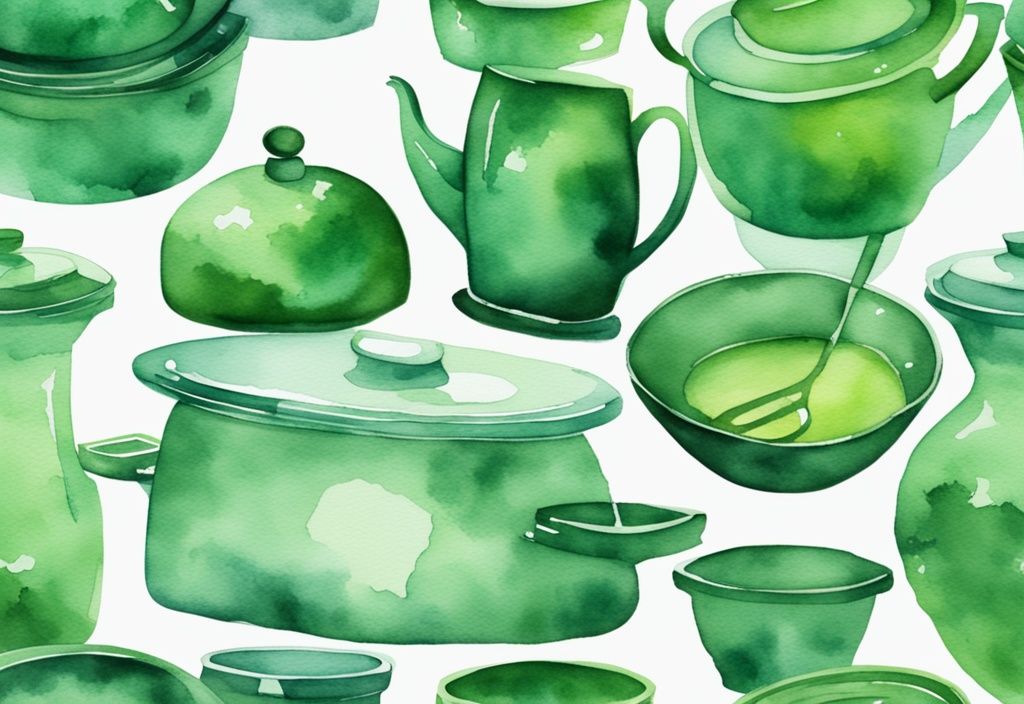
Thermal Shock and Fragility: Handle with Care
Glass cookware can be a bit fragile, especially when it comes to thermal shock. I learned this the hard way when a sudden temperature change caused my favorite glass dish to shatter. This fragility means you need to be extra careful when moving glass cookware between different heat environments. Despite its beauty, this is one of the cons of glass cookware that requires careful handling.
Weight and Storage: The Space Challenge
Another aspect to consider in the pros and cons of glass cookware is its weight and bulkiness. Glass dishes are noticeably heavier than metal ones, making them a bit cumbersome to handle. I often find myself struggling to find space in my kitchen to store them neatly. Their inconsistent sizing can make stacking a challenge, especially if your kitchen space is limited.
Not All Cooking Methods: The Limitations
Glass cookware isn’t suitable for every cooking method. For instance, it doesn’t work on induction stovetops unless it has a magnetic metal bottom. I remember the first time I tried using it on an induction stove, only to realize it wasn’t compatible. If you’re wondering whether other materials are suitable for kitchen use, you might want to explore if silicone is microwave safe. This limitation can require extra steps, like transferring bread to a wire rack for crisping. Recognizing these limitations is crucial when weighing the pros and cons of glass cookware.
Price Tag: Is it Worth the Investment?
Glass cookware often comes with a higher price tag, which can be a deterrent. However, I find its durability can sometimes justify the cost, especially if you value safety and aesthetics in your kitchenware. When considering the pros and cons of glass cookware, think about whether its long-term benefits align with your cooking habits and budget. For me, the investment has been worthwhile, but it’s a personal decision that depends on your priorities.
Is Glass Cookware Right for You? The Conclusion
Deciding whether glass cookware suits your kitchen needs involves reflecting on your cooking habits and priorities. I remember when I first switched to glass cookware; it felt like a small but significant step towards a healthier lifestyle. Glass cookware offers a unique blend of safety, aesthetics, and versatility, making it an attractive option for many. Its non-toxic nature ensures that no harmful chemicals will leach into your food, providing peace of mind for health-conscious cooks. Plus, the elegant appearance of glass cookware can enhance your kitchen’s visual appeal, making it a stylish choice for serving meals directly from oven to table.
However, it’s crucial to weigh the pros and cons of glass cookware before making a purchase. While glass retains heat effectively, keeping your meals warm for extended periods, its lower thermal conductivity can lead to uneven cooking and longer bake times. This characteristic might be a drawback for dishes requiring precise temperature control. For those interested in how glass-related properties affect other products, you might want to explore our review of the Lovevery play mat. I’ve learned to adjust my cooking techniques to accommodate these quirks, but it’s something to consider.
Furthermore, the fragility of glass cookware necessitates careful handling to prevent breakage, especially when dealing with sudden temperature changes that can cause thermal shock. I’ve had my share of mishaps, but with a little extra care, these can be avoided.
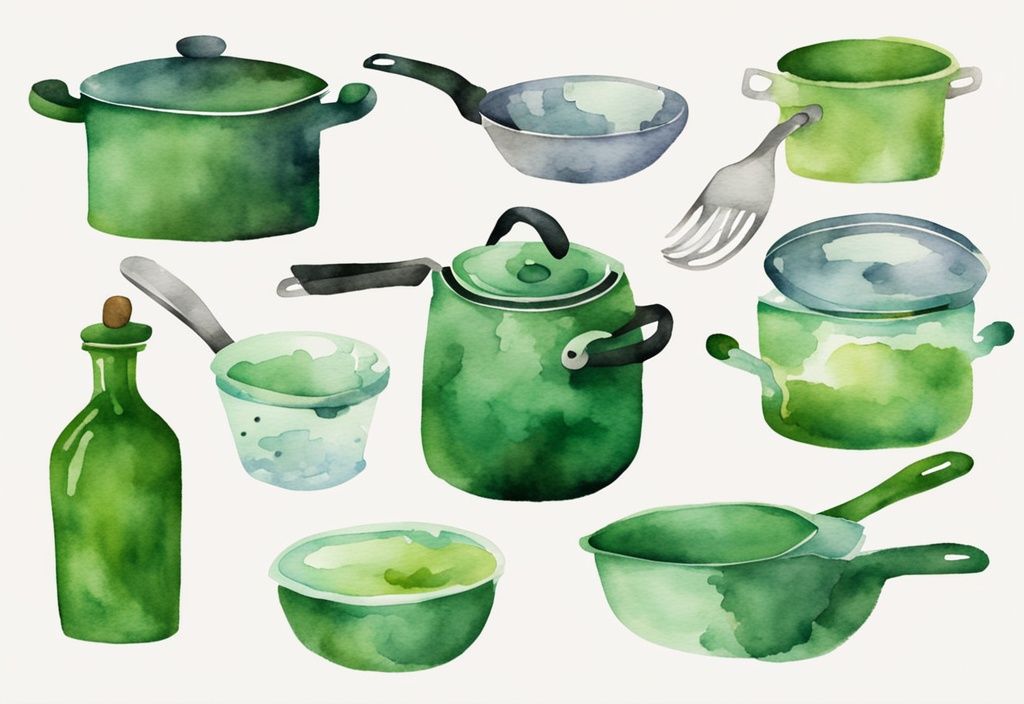
Consider the practical aspects of using glass cookware, such as its weight and storage requirements. Glass items tend to be heavier and bulkier than their metal counterparts, posing challenges in handling and storage. Despite these potential drawbacks, the durability and multi-functional nature of glass cookware can make it a worthwhile investment for those prioritizing safety and aesthetics.
Ultimately, understanding the pros and cons of glass cookware will help you make an informed decision that aligns with your culinary preferences and lifestyle. Remember, every choice you make in your kitchen is a step towards a healthier, more sustainable life. With a little patience and practice, glass cookware can become a cherished part of your non-toxic journey.
Your Questions Answered: Glass Cookware FAQ
Exploring the pros and cons of glass cookware can be quite the journey. From understanding its compatibility with induction stovetops to discovering its culinary strengths, this section delves into the essential questions you might have. Let’s navigate through these insights together, ensuring you feel equipped to make the best choices for your kitchen.
Induction Stovetops: Can Glass Cookware Handle the Heat?
I’ve often found myself pondering whether glass cookware could work on my induction stovetop. The truth is, unless it has a magnetic metal base, glass cookware isn’t suitable for induction. This is because induction cooking relies on magnetic materials to generate heat. It’s a small detail, but one that makes a big difference in the pros and cons of glass cookware.
Freezer to Oven: Is Glass Cookware Up for the Task?
Transitioning glass cookware from the freezer to the oven can be a bit tricky. While some pieces are designed for this, they can be prone to thermal shock. I remember the first time I experienced this—it was a lesson in careful handling. Avoiding sudden temperature changes is key to preventing shattering, a crucial point when considering the pros and cons of glass cookware.
Odors and Flavors: Does Glass Cookware Retain Them?
One of the things I love about glass cookware is its ability to keep odors and flavors at bay. Unlike some materials, glass doesn’t hold onto the scents of past meals. This means each dish tastes just as it should, which is definitely a pro in the pros and cons of glass cookware.
Cooking Speed: Glass vs Metal Cookware
When it comes to cooking speed, I’ve noticed that glass heats evenly but takes a bit longer than metal. This is due to its lower thermal conductivity. It’s a trade-off worth considering, especially if you’re weighing the pros and cons of glass cookware against metal options.
Best Dishes to Cook in Glass Cookware: Top Recommendations
I’ve found that glass cookware truly shines when baking casseroles, lasagnas, quick breads, and pot pies. Its ability to retain heat and manage temperature changes makes it perfect for these dishes. This versatility is a standout feature in the pros and cons of glass cookware, offering a delightful cooking experience.
Hi, I’m Olivia Green, the voice behind nontoxicways.com. I’m passionate about helping you make the shift to a healthier, non-toxic lifestyle without feeling overwhelmed. I love sharing my personal journey, from small changes to big transformations, along with practical tips that make it all feel doable. My goal is to inspire and guide you toward a lifestyle that benefits both your well-being and the planet. Let’s take this journey together, one simple step at a time!
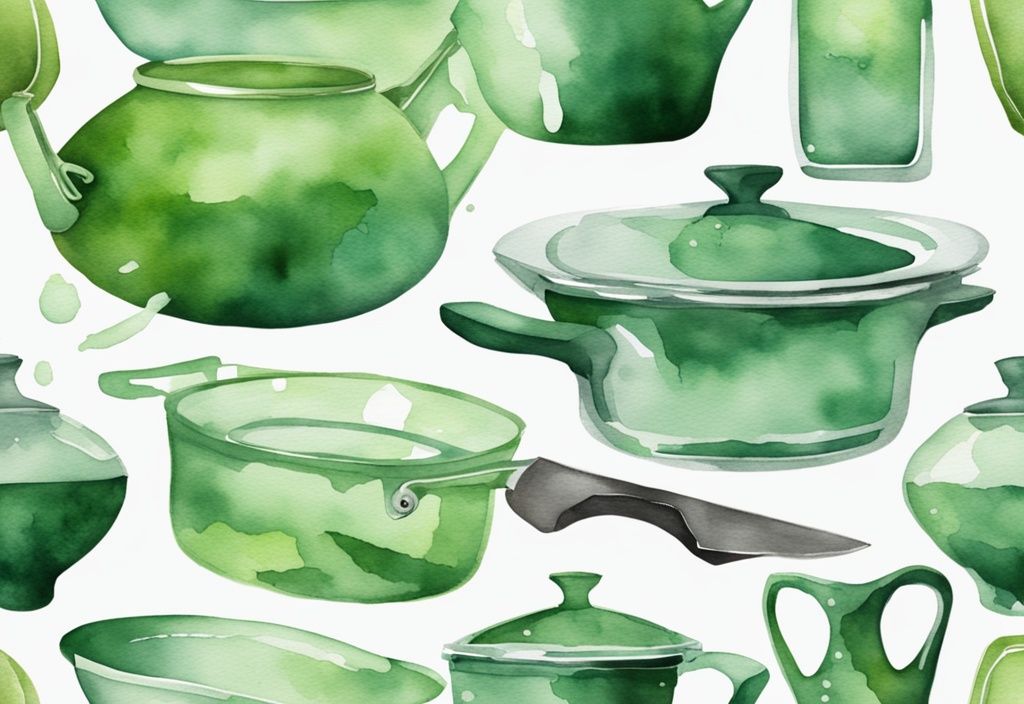
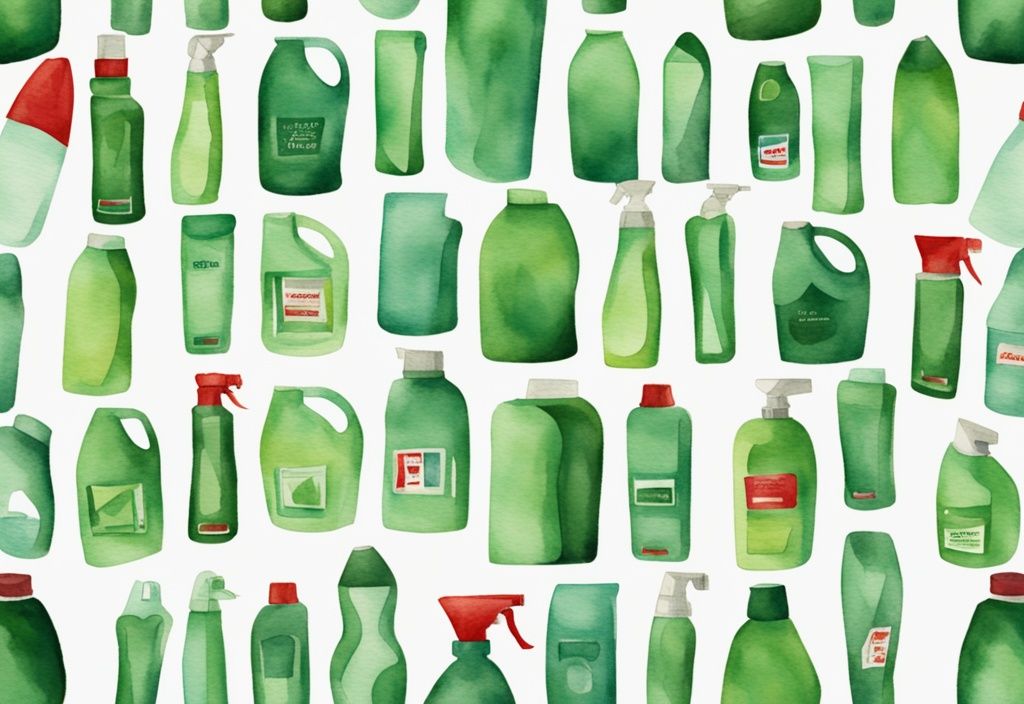

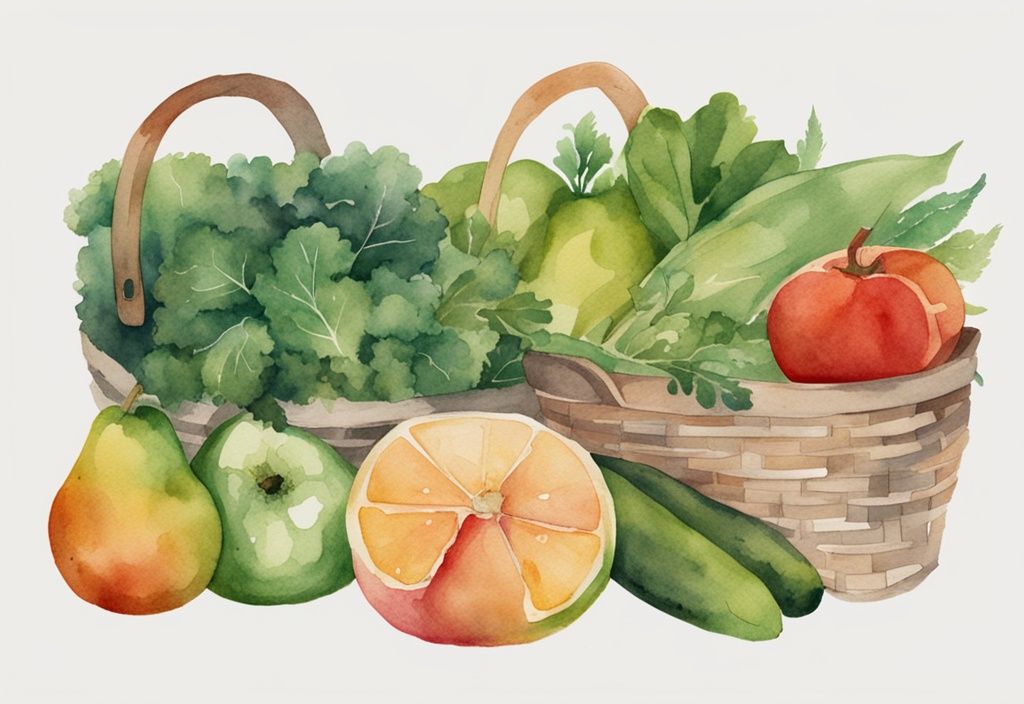
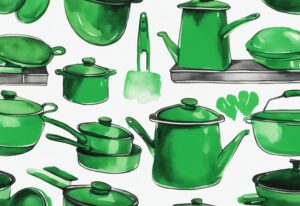
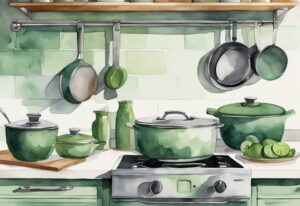

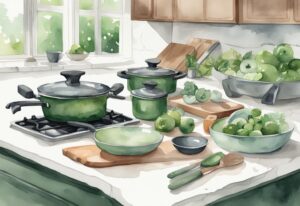
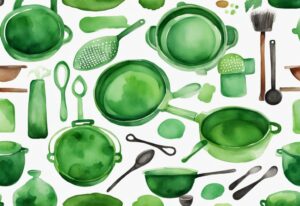





Post Comment